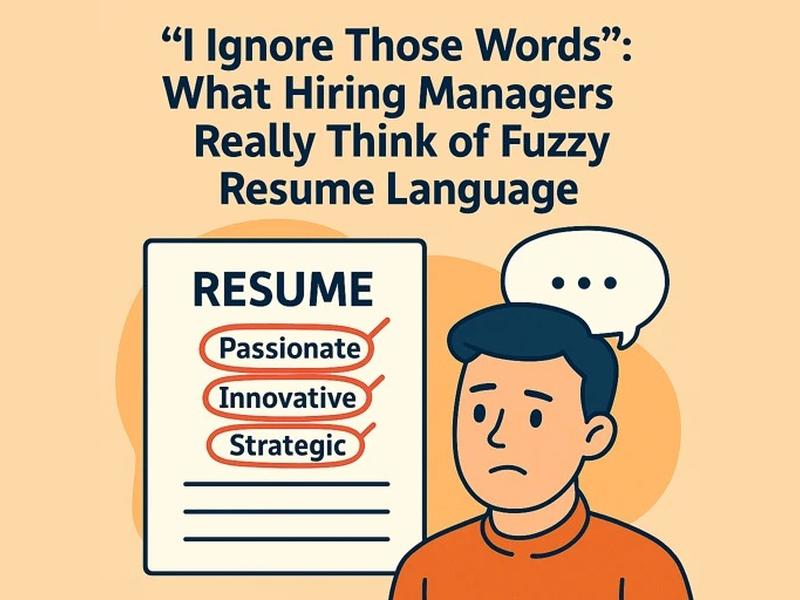I was recently talking with a hiring manager about resumes when he said something that stuck with me:
“I immediately ignore those words.”
What was he talking about? The fluff. The fuzzy, feel-good language that fills most resumes but carries no weight. If you’ve ever used words like dynamic, strategic, or collaborative, this post is for you.
The Problem: Fuzzy Words Don’t Land
Here’s what that hiring manager shared:
“When I see a resume full of words like ‘dynamic’ or ‘creative thinker,’ I tune out. It doesn’t help me understand what they’ve actually done.”
And he’s right. Most resumes include lines like:
“Dynamic, strategic product leader bringing creative thinking and collaboration skills to bear to create meaningful products in the ecommerce space.”
It might sound polished, but it doesn’t say anything real. It doesn’t tell the reader what you did, what problems you solved, or what outcomes you delivered.
Common Resume Buzzwords That Get Ignored
These words might sound impressive, but to most recruiters and hiring managers, they’re red flags for vagueness:
- Dynamic
- Strategic
- Analytical
- Collaborative
- Creative thinker
- Self-starter
- Innovative
- Passionate
These aren’t bad qualities but just saying you have them doesn’t prove anything.
Saying you’re “strategic” is like saying you’re “funny” if you have to say it, you’re probably not showing it.
The Fix: Show, Don’t Claim
Here’s how to fix it: replace fuzzy traits with small, specific stories that demonstrate those qualities.
Use a simple structure:
Problem → Strategy → Execution → Result
Example 1
Don’t say:
“Strategic product manager with strong execution skills.”
Do say:
“Created and executed a go-to-market strategy for our underperforming mobile app, resulting in a 3x increase in weekly active users within six months.”
That line shows you’re strategic and effective. It gives a hiring manager something real to hold onto.
Example 2
Don’t say:
“Analytical thinker with strong collaboration skills.”
Do say:
“Led cross-functional workshops to identify user drop-off points, resulting in a 15% improvement in conversion rate.”
Still analytical. Still collaborative. Just proven with outcomes.
Why This Works
Hiring managers aren’t scanning for traits. They’re scanning for evidence.
They want to know:
- Can you solve real problems?
- Can you think clearly?
- Can you get things done?
Fuzzy words don’t answer those questions. Micro-stories do.
Final Takeaway
If you want to say you’re something—don’t.
Show them. Replace soft claims with sharp, specific examples. That’s what hiring managers notice. That’s what gets interviews.
Need help turning fuzzy lines into real impact?
Book a free resume review and I’ll help you rewrite your resume to get noticed.

